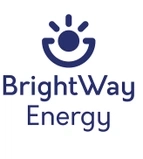Benefits of Solar Energy
Solar energy comes with multiple benefits. Here are some highlights.
- Reduced carbon footprint: Using solar is a surefire way to lower your carbon footprint and home fossil fuel dependency.
- Better energy independence: Solar panel systems can keep your home running through blackouts and emergencies. You can use your solar energy anytime with optional battery storage.
- Lowered energy bills: You can skip the premium cost of grid-tied power by creating some electricity at home. Plus, many states provide net metering which can allow you to sell your unused energy back to credit part of your bill.
What Solar Incentives Are Available to Lynn Homeowners?
Governments and power companies often reward homeowners for embracing solar. Here are some of the tax credits, rebates, or other programs you could qualify for.
Incentive Type: Property Tax Incentive
Website: in.govIncentive Amount:
Solar energy systems used for heating or cooling: out-of-pocket expenditures by the owner for the components and labor
Wind, hydroelectric, geothermal, solar thermal, solar PV, and other solar energy systems: the assessed value of the system
Incentive Type: Personal Tax Credit
Incentive Amount:
15%
Incentive Type: Sales Tax Incentive
Website: mass.govIncentive Amount:
100% exemption
Incentive Type: Industry Recruitment/Support
Incentive Amount:
100% deduction
Incentive Type: Rebate Program
Website: capelightcompact.orgIncentive Amount:
Appliances
Refrigerator and Freezer Recycling: $125
Electric Clothes Dryers: $50
Clothes Washer: $350
Dehumidifiers: $30
Room Air Purifiers: $40
Room Air Conditioner: $40
Heating & Cooling
Oil Heating System: Up to $800
Propane Heating Equipment: Up to $2,300
Oil Water Heater: Up to $400
Propane Water Heater: Up to $800
Heat Pump Water Heater: Up to $600
Central AC/Heat Pump: Up to $250/ton
Mini-Split Heat Pump: Up to $250/ton
Programmable Thermostats: Up to $25
WiFi Thermostat: Up to $100
Solar Domestic Hot Water heater: $500 - $1,500
Home Electronics
Advanced Power Strips: Varies
Home Insulation
Limited Time Enhanced Incentive: 75%
Year-Round Tenant Incentive: 100%
Enhanced Residential Program: 100%
Lighting
LEDs: Varies
Home Energy Assessment: Free
Incentive Type: Loan Program
Website: masssave.comIncentive Amount:
$25,000 ($50,000 for some expanded HEAT offerings)
Incentive Type: Performance-Based Incentive
Website: masmartsolar.comIncentive Amount:
(Base compensation rate + compensation rate adders - greenfield subtractor) * total kWh generated - value of energy generated
Incentive Type: Loan Program
Website: masssolarloan.comIncentive Amount:
Maximum required: $35,000; maximum possible: $60,000
Incentive Type: Rebate Program
Website: masscec.comIncentive Amount:
New GSHP Rebate: $2,000 per ton with adders to eligible applicants
Retrofit Existing GSHP Rebate: varies with installation costs
Incentive Type: Rebate Program
Website: masscec.comIncentive Amount:
Standard Residential:
Pellet Stove: $1,000 - $1,750
Catalytic Woodstove: $750 - $1,250
Non-Catalytic Woodstove: $500-$1,250
Fully Automated Wood Stove: $1,500 - $1,750
Low-Income Residential:
Pellet Stove: $2,500 - $3,250
Catalytic Woodstove: $2,250 - $2,750
Non-Catalytic Woodstove: $2,000-$2,750
Fully Automated Wood Stove: $2,750 - $3,250
Incentive Type: PACE Financing
Incentive Amount:
Financing amount locally determined; 20-year financing term
Incentive Type: Solar Renewable Energy Credit Program
Website: mass.govIncentive Amount:
Varies, depending on market supply and demand
Incentive Type: Personal Tax Credit
Website: ecowatch.comIncentive Amount:
30% federal tax credit for systems placed in service after 12/31/2021 and before 01/01/2033. Good for: solar water heat, solar photovoltaics, biomass, geothermal heat pumps, wind (small), fuel cells using renewable fuels.
How To Choose the Best Solar Company in Lynn
The more comprehensive your provider search is, the better your solar panels will ultimately work. Consider each of these elements in your business search.
Licensing and Training
Massachusetts requires new solar photovoltaic systems in the Commonwealth to be installed by a licensed electrician and new solar water heaters to be installed by a construction supervisor. You should also visit a company's website to learn about its private certifications. Two of the most respected are the PV Installation Professional and Solar Heating Installer certificates, awarded by the North American Board of Certified Energy Practitioners (NABCEP). Some companies don't publish this information online, so you should also ask your estimator about them.
Cost of Solar Panels in Lynn
Different solar panel types look and perform differently. Monocrystalline panels offer the best energy production but cost more than other options and generally have the highest quality. Polycrystalline panels provide a lower price point but produce less power. Thin-film panels work well for small projects like RVs and sheds, but they're not ideal for larger installations due to their low performance.
You can also add electric vehicle (EV) chargers and battery backup systems. These will increase your total installation cost, but they can increase your solar system's efficiency. Not every solar contractor includes these optional components, so look for a contractor that sells them if it's important for you.
Generally speaking, it will cost about $20,300 for a five-kilowatt solar array in Lynn. This table shows more specific pricing information for different solar panel types and system components in your area.
| Solar Panel Cost | Average Cost |
|---|---|
| Solar Monocrystalline | $1,212 |
| Solar Polycrystalline | $945 |
| Thin-Film | $553 |
| Solar Battery | $776 |
| Solar Home EV Charger | $2,909 |
Financing Solar Energy in Lynn
There are a plethora of ways to pay for a new solar system, and the right one will help you decrease overhead. A few of the most common options include cash payments, loans, leases, and power purchase agreements (PPAs). We recommend paying with cash or using a solar loan for the best return on investment (ROI). Cash payments require a hefty sum up-front, but you’ll pay the least long-term by avoiding interest. You’ll also have full ownership of your system and can apply for solar panel incentives to minimize your total costs. Solar loans are another good option if you don’t want to make a big initial investment. You can pay for your system in installments while still enjoying energy bill savings and solar incentives. However, you’ll spend more in total due to accruing interest. Solar leases involve paying a set monthly rate to use rooftop panels. A PPA (Power Purchase Agreement) lets you pay a monthly rate based only on the energy you use, as with an electric bill. We generally don’t recommend these two choices because you won't own the system and are disqualified from using solar incentives. Look for contractors that offer multiple payment plans to find the right fit for your wallet.
The table below lists the average payback periods for different capacities of solar systems in Lynn.
The IRS allows you to claim a 26% federal solar tax credit on your new solar panels, so long as you purchase it before 2032. Municipal authorities and utilities might also offer their own financing programs, rebates, and incentives that could save you more money.
| Solar System Capacity | Estimated Payback period |
|---|---|
| 1 kW | 2.0 years |
| 2 kW | 3.9 years |
| 5 kW | 9.8 years |
| 10 kW | 19.6 years |
Ready to Get a Quote on Your Solar Project?
Please enter a valid 5-digit zip code!
Frequently Asked Questions About Solar in Lynn
How much energy and money could I save per year by switching to solar?
Is solar energy easily accessible in Lynn?
Should I expect a boost in my property value after adopting solar power?
What if I live in a heavily-wooded or dark
How many years does an average solar system last?
What upkeep do my solar panels need, and how frequently do they need it?
How many estimates should I get before making a final solar company decision?
To share feedback or ask a question about this article, send a note to our Reviews Team at reviewsteam@thisoldhousereviews.com.

















